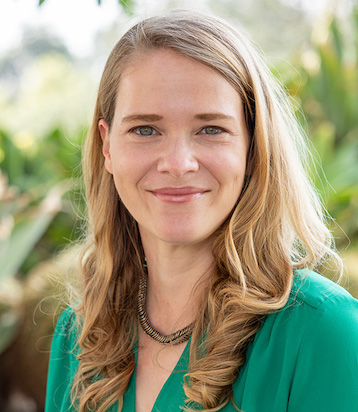Kathleen Burns

Hixon-Riggs Early Career Fellow in Science and Technology Studies
My research and teaching focus on the intersections of the environmental humanities and transatlantic literature from the mid-nineteenth century to present, with emphases in science and visual/media studies. My current book project, Vegetal Forms: How Plants Cultivate Life in Literature and Science, combines literary and cultural analyses to show how the language of plants circulates in literature, science, and art to produce biological understandings of life and the human. By focusing on sites where scientific research and systems of plant cultivation converge—plantations, greenhouses, seedbanks, and gardens—my research demonstrates how regimes of plant domestication naturalize racialized and gendered hierarchies of life.
Whether I am teaching an introduction to science in literature or a survey of the environmental humanities, my courses propel students to interrogate the ways in which power and difference manifest in cultural narratives, informing everything from literature to environmental racism to their own lived experiences. My current Harvey Mudd course on “Environmental Crisis in Science and Literature” asks students to consider what happens when something is called a “crisis”? What kinds of storytelling or futurities does it enable or foreclose? Students are challenged to investigate the role of storytelling in science as we explore how art and literature can help us to imagine more just futures. Students in my courses might encounter texts spanning from Mary Shelley’s Frankenstein (1818) to Nnedi Okorafor’s Lagoon (2014) to IPCC climate reports, as we delve into the expansive power of language to shape our core beliefs and worldviews.
My cross-disciplinary, vertically integrated projects embolden students to rethink traditional scientific issues like sustainability or ozone depletion as narrative-driven phenomena subject to the critical tools of the humanities. Alongside Duke faculty in the sciences and social sciences, I co-taught three environmental courses in Duke’s Bass Connections, a program that brings together teams of undergraduates, graduates, and faculty to collaborate across departments on yearlong research topics. Over the course of the year, students learned to approach environmental issues—water quality, the ozone hole, and geoengineering—from a holistic perspective. I brought this commitment to Unearthing Duke Forest, a multidisciplinary working group I helped co-found with scientists, which examined how Duke Forest’s historical plantation ecology inflects the production of scientific knowledge. I am excited to bring this crossdiciplinary spirit to my work as a Hixon-Riggs Early Career Fellow in Science and Technology Studies.
My research has been supported by grants and fellowships from Duke University, the American Philosophical Society, and the American Council of Learned Societies. I received my PhD in English at Duke University.